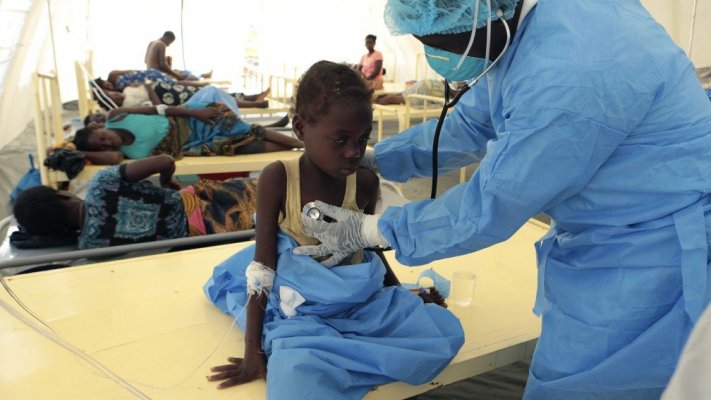
The Portuguese-speaking country’s health minister announced today that an outbreak of cholera that has affected some countries in the southern African region since the end of last year has killed 37 people in Mozambique.
Armindo Tiago explained that the victims are among the 5,260 cases recorded by the Mozambican authorities, at a time when the country is going through a period characterized by “diseases of water origin” due to the rainy season.
The Mozambican official was speaking during a news conference called to assess the visit of a high-level delegation from the Global Polio Eradication Initiative, a team also made up of WHO Regional Director Matshidiso Rebecca Moeti.
The minister explained, “Cholera cases occur at a time when the country has already received the vaccines and is preparing to start the vaccination campaign, starting from the 26th of this month.”
Armindo Tiago added that the ambition is to cover just over 700,000 people in eight districts in the provinces of Nyasa, Sofala, Zambezia and Gaza.
The minister also stressed the call for vigilance among communities, noting that the country is preparing for an approaching tropical storm.
He concluded by saying, “Taking into account the possibility that the country will be affected in the coming days by a depression or a tropical cyclone, I call for the readiness of the health response teams.”
Outbreaks of cholera and other diarrheal diseases occur seasonally in Mozambique during the rainy season.
Between October and April, Mozambique is periodically subjected to floods, a phenomenon justified by its geographical location, which is subject to the passage of storms and, at the same time, downstream of most of the river basins of southern Africa.

